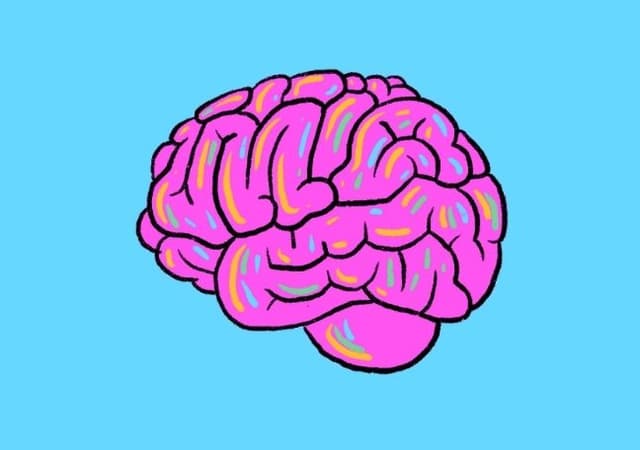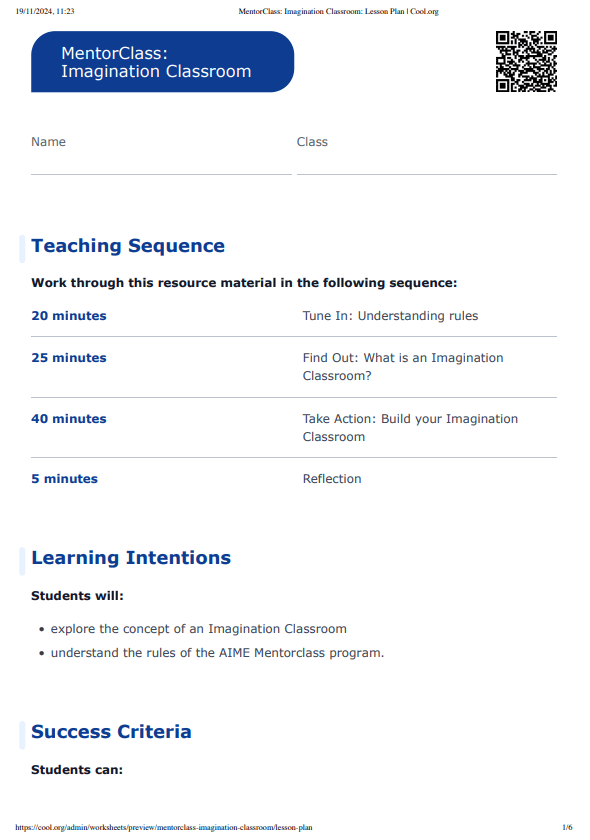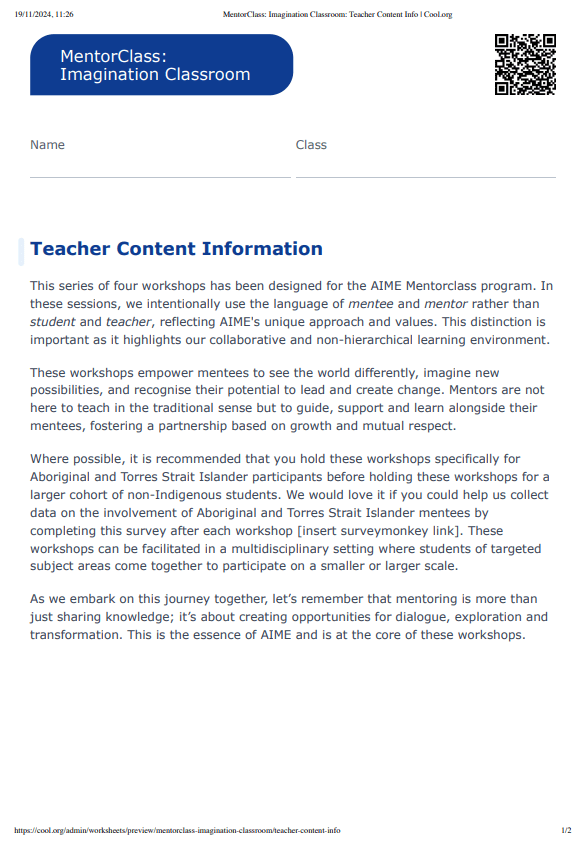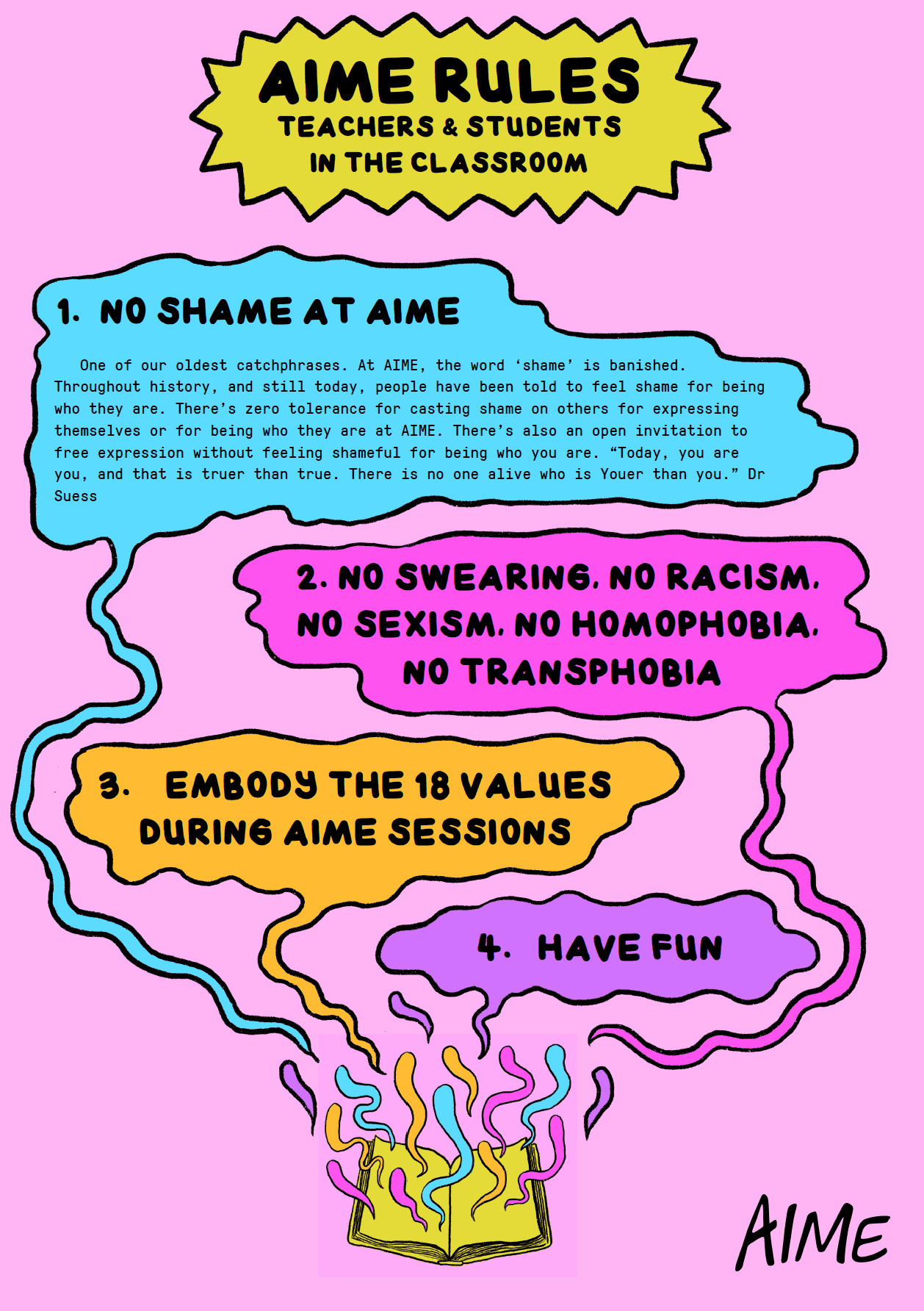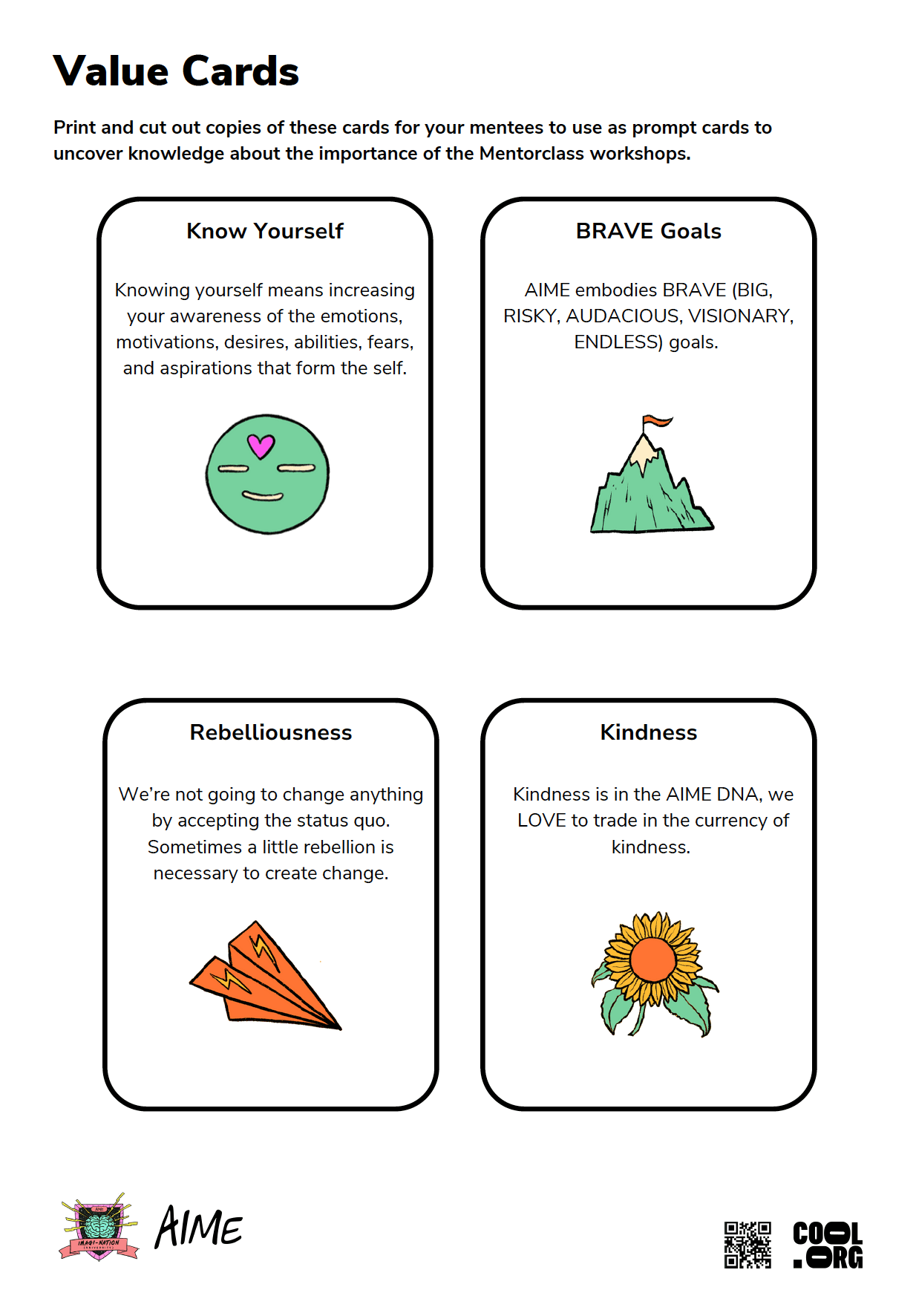Learning intentions:
Students will...
- explore the concept of an Imagination Classroom
- understand the rules of the AIME MentorClass program.
Success criteria:
Students can...
- contribute ideas and respectfully collaborate
- use materials to plan and design a learning environment into an Imagination Classroom.
